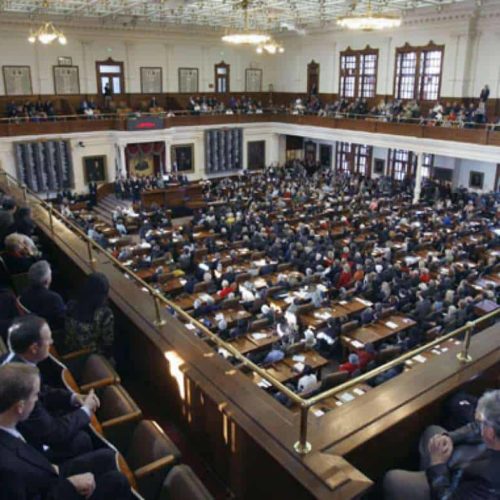Introduction
For lenders specializing in the growing business of loaning money to plaintiffs in exchange for a share of their winnings, a 2003 ruling by the Ohio Supreme Court was cause for great alarm.
The court said a company that had loaned $7,000 to a woman injured in an auto accident had violated Ohio common law, which prohibited outside investment in lawsuits. The loan agreement allowed the lender to claim as much as $30,000 of her future winnings.
An “intermeddler,” the court wrote in striking down the financial arrangement, “is not permitted to gorge upon the fruits of litigation.”
But the decision, which put a stop to lawsuit lending in the state, didn’t hold up for long.
Five years later, the Ohio General Assembly voted unanimously to make lawsuit funding legal again after a campaign led and financed by the lenders themselves.
These companies, which include Oasis Legal Finance in Illinois and LawCash in New York, have made almost $200,000 in campaign contributions since 1998 to legislators in a handful of states where campaigns to legalize or otherwise regulate the business of making loans to plaintiffs were underway, according to data from the National Institute of Money in State Politics. They spent much more — at least $1 million — on lobbying efforts, according to a Center analysis.
As reported in a recent collaboration between the Center for Public Integrity and The New York Times, this campaign to influence lawsuit funding laws comes as an increasing number of lawyers, judges and regulators complain that the $100 million industry is siphoning away too much money from plaintiffs into the pockets of the specialty financial institutions that have popped up in the past decade to supply lawsuit loans.
Annual interest rates on the loans often exceed 100 percent, and companies are not required to give clear and complete pricing information. The lending is now legal in most states, and isn’t subject to usury laws that put a cap on interest rates.
Lenders defend the high rates, which they say reflect the risks with each client. Money lent to plaintiffs should not be regulated as loans because plaintiffs do not have to pay anything back if they lose their case, lenders say.
Lobbying victories in Texas, Ohio
An analysis of campaign finance and lobbying data by the Center shows how the industry has bulked up its presence in states where bills to legalize or regulate litigation lending have come up on the agenda.
In Texas, lenders fought a bill introduced in 2005 that would have subjected litigation financing to the same standards as ordinary loans. Legal finance groups opposed to the legislation spent between $360,000 and $1 million on lobbying that year, according to the spending range that must be disclosed under state law.
The American Legal Finance Association, a trade group formed that same year as part of a settlement with then-New York Attorney General Eliot Spitzer over lending practices, hired 27 lobbyists to fight the bill. Oasis Legal Finance deployed 13 lobbyists.
Finance companies also made about $10,000 in direct campaign donations in Texas that year, and almost all went to state Sen. Rodney Ellis. A lawyer and former Houston city council member, Ellis sits on the board of Esquire Bank based in New York. Esquire specializes in a related line of business, loaning money to plaintiff lawyers to help them fund cases. (This practice was described in an earlier Center collaboration with The New York Times). Ellis did not respond to a Center request for comment.
The legal finance lobbying paid off when the bill was defeated.
In Ohio, a bill legalizing lawsuit lending passed in 2008. Rep. Louis Blessing, sponsor of the measure, told the Center that the lenders feared going out of business and approached him with their proposed language.
The bill faced no opposition, either in the legislature or from outside interests, which Blessing credited to its strong consumer protections.
“It was a pretty straightforward bill,” Blessing said. “There was not a single vote against it from people on the far left or far right. What does that tell you?”
There was no opposition, but plenty of support. The American Legal Finance Association and Oasis hired lobbyists leading up to the bill’s passage. How much the hired guns where paid isn’t known — Ohio does not require the disclosure of money spent on lobbying.
Gary Chodes, the head of Oasis Legal Finance, told the Center that he went to Ohio to win the support of the insurance industry, Ohio Bar Association, and Ohio Trial Lawyers Association, and to testify before both chambers of the legislature. Supporters of the legalization effort sold it as a pro-consumer measure, with stories of plaintiffs in dire need of money to help pay rent and other bills while they wait for their case to resolve.
Chodes said it was “quite telling” that the same year the state assembly agreed to allow plaintiff funding, it passed new restrictions on payday lenders. This proves, he said, that lawmakers considered his product a different animal than loans commonly associated with predatory lending.
In 2009, the industry also defeated efforts by Maryland legislators that would have reined in lawsuit funding. Oasis and the American Legal Finance Association spent at least $90,000 on lobbying in the state in 2009 and 2010, according to disclosure reports.
States pass bills allowing unlimited interest rates
In recent years, the industry and its allies have focused most of their efforts on supporting bills in other states, including Illinois and New York, that would establish licensing and disclosure rules, but also block caps on the interest rates the lenders can charge.
Maine passed this type of law in 2008, followed by Nebraska last year. Sympathetic legislators introduced bills in six other states last year.
In New York, where a lawsuit funding bill was proposed in 2009, the industry spent about $27,000 during the 2010 election cycle, most of it on Gov. Andrew Cuomo, then the state’s attorney general. Companies spent an additional $200,000 on lobbying in the Empire state in 2009 and 2010.
But there are signs that the lenders and their allies may face a tougher road ahead in pursuing their legislative agenda. The New York State Senate passed the industry-supported measure in its most recent legislative session, but it went no further.
The Illinois Senate also passed a bill that would exempt lawsuit funders from consumer protection laws. But the House of Representatives voted 87-28 to reject the legislation following an editorial in the Chicago Tribune pleading with lawmakers to kill the bill.
“The bill would give legal certainty to an abusive practice and put it under a light regulatory scheme where it can flourish,” the editorial said.
Read more in Inequality, Opportunity and Poverty
Betting on Justice
IMPACT: Influential N.Y. ethics panel cautions lawyers on dealings with lawsuit funding companies
ABA still studying ethical issues raised by hedge funds, others investing in lawsuits
Inequality, Opportunity and Poverty
As IRS crusades against Americans hiding money offshore, Latin American tax cheats flock to U.S. banks
IRS event today on plan to force banks to report foreign nationals’ accounts



Join the conversation
Show Comments